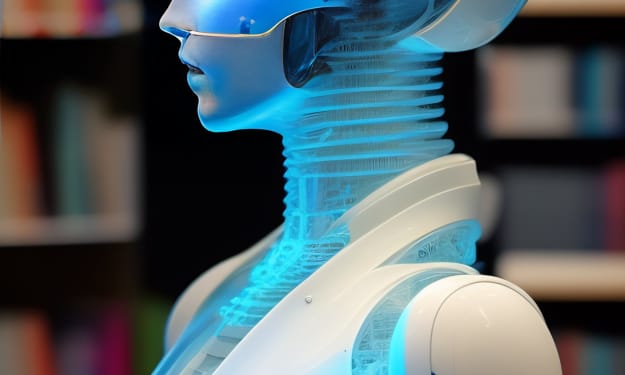Do You Think Robots Will Cause Unemployment in the Future? Why? Why Not?
The Impact of Robots on Employment

There has been much discussion regarding the potential effects of automation and robotics on employment in the future. There are worries that as technology develops at an unprecedented rate, human labor may be replaced by robots, creating a considerable amount of unemployment. To completely comprehend the effect of robots on the employment market, this complicated subject necessitates a sophisticated viewpoint. We shall examine the numerous arguments and contributing elements around the issue of whether or not robots will lead to increased unemployment in this post.
Across industries, robots are becoming more and more common, revolutionizing the way humans work and communicate. Robots have proven their ability to carry out jobs precisely and effectively in a variety of industries, including manufacturing and healthcare. However, as automation advances, worries about robots taking over human jobs increase. However, as automation advances, worries grow that humans will be replaced by machines, creating a wave of unemployment in their wake.
**Robotics' Effect on Employment**
**Growing Automation**
In several industries, productivity and efficiency have grown as a result of automation. Robots are being used to carry out duties that were previously only performed by humans as they become more capable. This change has the ability to reshape entire industries, eliminating some employment while creating others.
**Job Displacement and Replacement**
One of the primary concerns is the displacement of human workers by robots. As automation technology advances, routine and repetitive tasks can be easily automated, leading to a decrease in demand for certain jobs. This displacement may cause short-term unemployment as workers need to transition to new roles or acquire new skills to remain employable.
**Technological Advancements**
The ongoing advancements in robotics and artificial intelligence (AI) are enabling machines to perform increasingly complex tasks. While this may lead to job displacement in certain areas, it also presents opportunities for humans to specialize in more sophisticated roles that require creativity, critical thinking, and emotional intelligence.
**Robots as Complementary Workers**
**Increased Productivity and Efficiency**
Robots have the potential to enhance productivity and efficiency in the workplace. By automating repetitive tasks, they free up human workers to focus on more complex and value-added activities. This symbiotic relationship between humans and robots can lead to improved outcomes and greater overall productivity.
**New Job Opportunities**
While some jobs may be replaced by robots, new roles are also emerging as a result of technological advancements. The development and maintenance of robots, along with the need for specialized skills in operating and managing automated systems, create employment opportunities that didn't exist before.
**Enhanced Job Quality**
Automation can improve the quality of jobs by eliminating tedious and physically demanding tasks, making work safer and more enjoyable for human workers. By collaborating with robots, employees can leverage technology to augment their capabilities, leading to a more fulfilling and satisfying work experience.
**Potential Risks of Automation**
**Job Polarization**
The automation of certain tasks may result in job polarization, with a growing disparity between low-skilled and high-skilled workers. Routine jobs that can be easily automated are at higher risk of elimination, while jobs requiring complex problem-solving or interpersonal skills may become more valuable.
**Skills Mismatch and Training Gap**
As automation transforms the employment landscape, there is a pressing need for individuals to acquire new skills to remain employable. However, there is a concern that the pace of technological change is outstripping the ability of workers to upskill or reskill, potentially leading to unemployment for those unable to adapt.
**Socioeconomic Implications**
The widespread adoption of robots and automation can have broader socioeconomic implications. Income inequality may widen as those with the necessary skills to thrive in the automated economy reap the benefits, while others face unemployment or reduced job prospects. Addressing these disparities requires proactive measures and policies to ensure a more inclusive future.
**Balancing Automation and Human Labor**
**Collaboration and Coexistence**
Rather than viewing robots as direct competitors, a more productive approach is to foster collaboration between humans and machines. By leveraging the strengths of both, organizations can optimize productivity and create a harmonious work environment where robots complement human workers.
**Upskilling and Reskilling**
To adapt to the changing nature of work, individuals need to embrace lifelong learning and continuous upskilling. Governments, educational institutions, and businesses must invest in providing accessible and comprehensive training programs that equip workers with the skills needed to thrive in the era of automation.
**Social Safety Nets**
As automation disrupts traditional employment models, it is crucial to establish robust social safety nets that protect workers during periods of transition. Policies such as universal basic income and job retraining assistance can help mitigate the impact of job displacement and ensure a smooth transition to new employment opportunities.
**The Future of Work in a Robot-Driven Economy**
**Adapting to Technological Changes**
The rapid pace of technological advancements necessitates a mindset shift when it comes to work. Embracing automation as a tool for efficiency and innovation, rather than fearing it as a threat, will be crucial in adapting to the evolving employment landscape.
**Shifting Employment Landscape**
As robots take on routine and repetitive tasks, the nature of jobs will continue to evolve. Roles that require uniquely human skills, such as creativity, empathy, and adaptability, are likely to become increasingly valuable in a robot-driven economy.
**Reimagining Work**
The rise of robots presents an opportunity to reimagine work and create a future where humans can focus on fulfilling and meaningful tasks. With automation taking care of mundane activities, individuals can explore new avenues for personal and professional growth, fostering innovation and societal progress.
**Conclusion**
The question of whether robots will cause unemployment in the future is multifaceted and complex. While there are concerns about job displacement and the potential for unemployment, it is important to approach the topic with a balanced perspective. Robots have the potential to augment human capabilities, increase productivity, and create new job opportunities. By embracing automation, upskilling the workforce, and implementing supportive policies, we can navigate the future of work in a way that benefits both humans and machines.
About the Creator
Ayan Das Sharma
"Powering Tomorrow's Innovations, Today"
1. Artificial Intelligence.
2.Web development.
3.Mobile app development.
4.Cybersecurity.
5.Data analytics.






Comments
There are no comments for this story
Be the first to respond and start the conversation.